HUSSEIN HAMADI, Iraq (Army News Service, Nov. 7, 2007) - Coalition forces and Iraqi Army soldiers killed five al-Qaida-in-Iraq operatives, wounded three and detained seven during Operation Ultra Magnus in and around Hussein Hamadi, Oct. 28-30.
Soldiers from Troop C, 2nd Squadron, 1st Cavalry Regiment and Iraqi soldiers from 3rd Company, 3rd Battalion, 2nd Brigade, 5th Iraqi Army Division swept through the town in southern Diyala Province, which had previously been an AQI stronghold.
"AQI used the area as a headquarters," said Capt. Al Bangor, Troop C, 2nd Sqdn., 1st Cav. Regt. commander. "They stored their weapons here, lived on the fringes of the town and they would push their fighters out to conduct attacks. (The local people) have lost contact with the Iraqi government for the last two years due to AQI."
AQI had taken over Hussein Hamadi, an affluent village 15 miles south of Baqouba, and forced the Shia-Muslim population to flee, while the remaining villagers were forced to abide by extremist laws. AQI kidnapped villagers and held them for ransom, effectively holding the whole town hostage.
"AQI set up very strict, fundamentalist Islamic rules," Capt. Bangor said. "You couldn't even smoke. It's a crime punishable by death. One farmer was arrested for selling his products to a Shia."
On the first day of the operation, the troops conducted an air assault on two villages directly south of Hussein Hamadi, forcing AQI to flee north to their stronghold.
In the villages of Sayyid Awwad and Abu Seyah, the troops discovered a hut that AQI was using as a prison and torture chamber, and found a man chained and beaten so severely that Capt. Bangor said it was three hours before they could move him.
The man was kidnapped on Oct. 25 in Baqouba because his brother was in the Iraqi Army and they wanted him and his brother to work for AQI. He said he was to go on trial by an insurgent leader for refusing to help the AQI, a crime punishable by death.
"They beat me with cables while holding a gun to my head, but I would not work for them because I would not betray my brother," he said. "These are very bad guys, they do bad things. I would never support them."
The Soldiers also detained an individual suspected of conducting successful sniper attacks against Iraqi Security Forces.
They brought in a medical team to treat the villagers as well. Since AQI had effectively shut the area off from the outside, the local populace was unable to provide for their basic sanitation and medical needs, and according to Capt. Bangor, the Soldiers treated 78 local Iraqis.
The next day, U.S. and Iraqi troops air-assaulted into Hussein Hamadi, clearing the town house by house, while Apache helicopters engaged three individuals fleeing the village with weapons.
An unmanned aircraft in the area spotted two more armed combatants on the run, and the ground troops fired, killing one. The UAC continued to track the second, following him to a hut several kilometers south of the village.
When Soldiers arrived at what turned out to be an AQI safe house, at least five armed combatants fled the home. The Soldiers immediately killed two and engaged in a 20-minute firefight with the remaining AQI operatives. Using rifles and grenades, the troops killed two more and wounded a fifth.
"It was definitely a situation of kill or be killed, and that's exactly what happened; it was either them or us," explained Sgt. David Boor, team leader with 1st Platoon, Troop C, 2nd Sqdn., 1st Cav. Regt. "It was a very high-risk operation. We knew we were going into a hornet's nest."
The troops found several weapons, including three AK-47s, 15 full AK-47 magazines, 1 RPK rifle, two pistols, several grenades and three tubes possibly used for making explosively-formed projectiles. They also found a guard roster. U.S. intelligence analysts believe AQI had set up a 24-hour guard to keep Shia Muslims out of the area.
On the third and final day of the operation, the Soldiers went back through the town and questioned the remaining villagers, trying to gain additional intelligence on AQI activities. They also cleared the surrounding palm groves, looking for weapon caches.
"Security has improved for the town," concluded 1st Sgt. Ghafil Mahdy of 3rd Company, 3rd Bn., 2nd Bde., 5th Iraqi Army Div., through a translator. "We captured lots of weapons and detained several insurgents and improved security for the village. We showed that we are working hard to finish off the terrorists and make the area more secure."
No U.S. Soldiers, Iraqi troops or Iraqi civilians were harmed during Operation Ultra Magnus.
(Staff Sgt. Russell Bassett works for the 4th Stryker Brigade Combat Team, 2nd Infantry Division Public Affairs Office.)
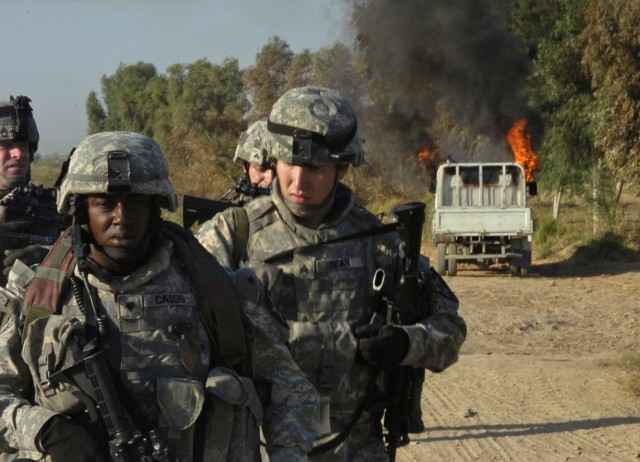
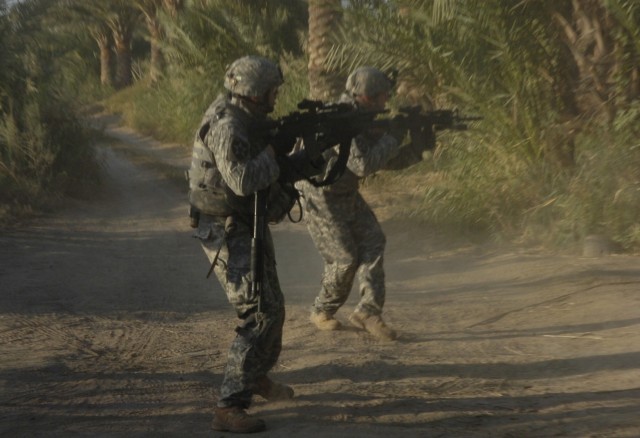
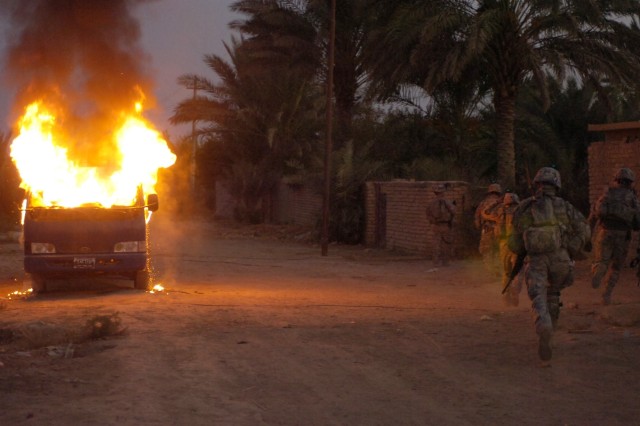
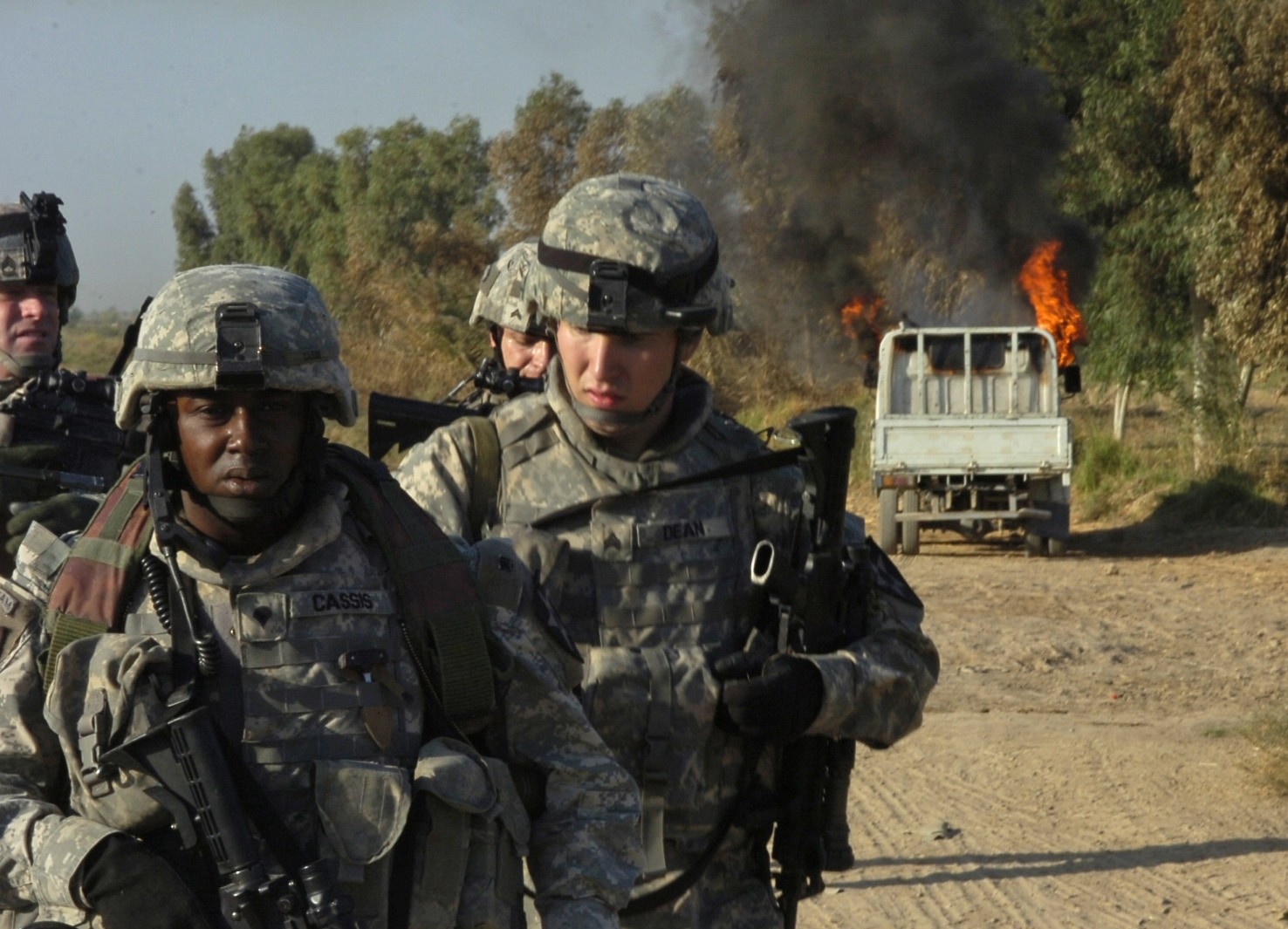
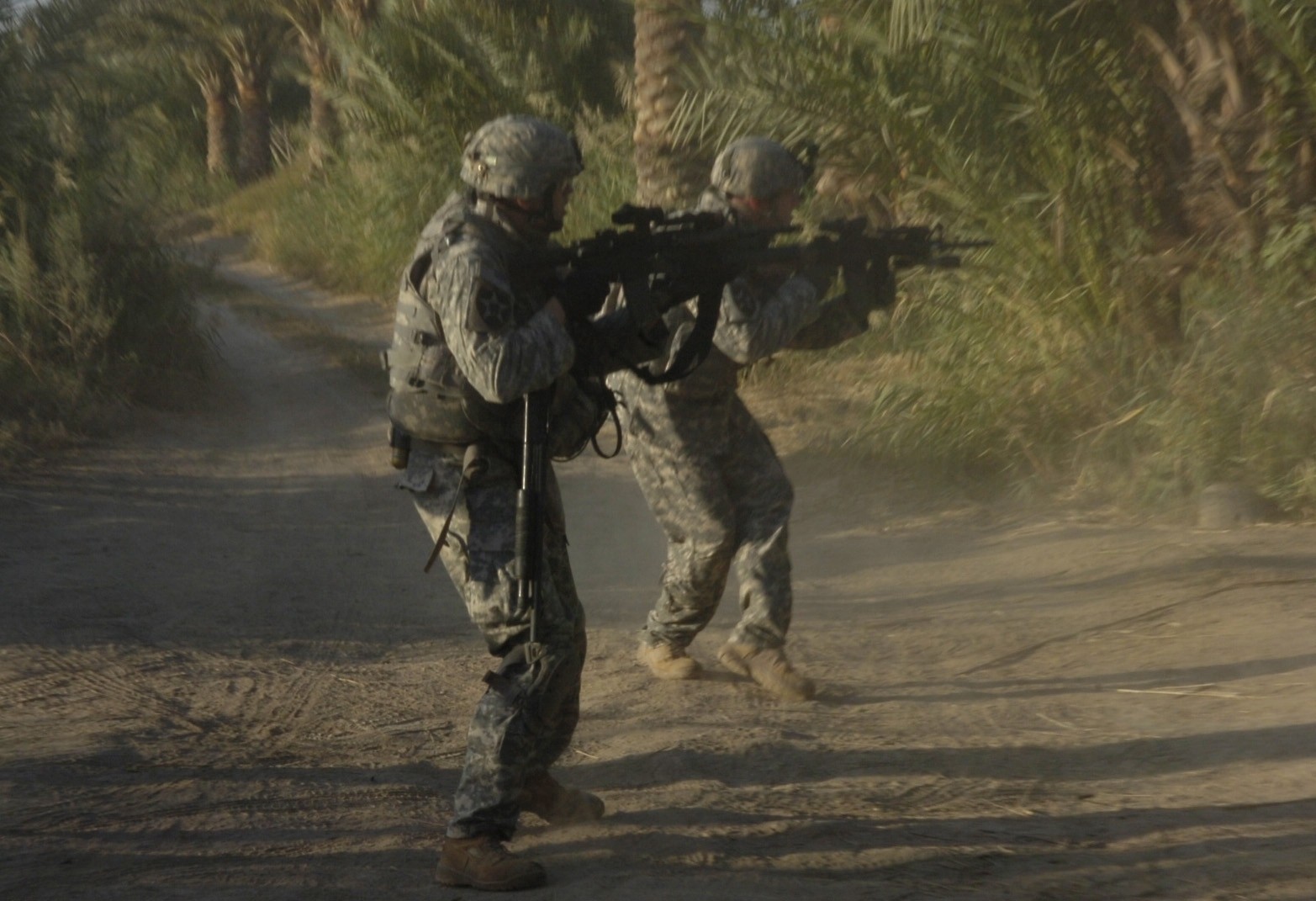
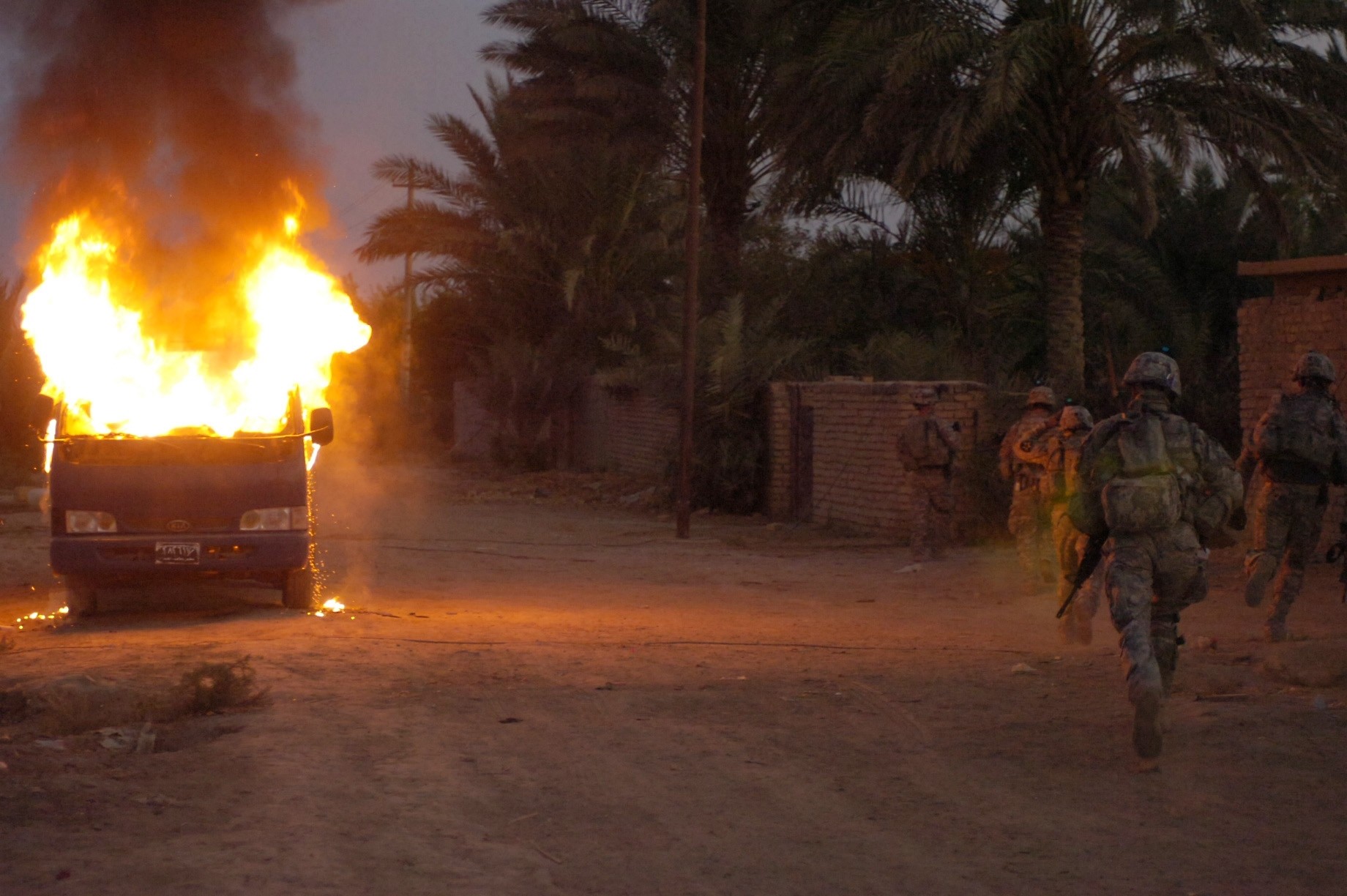
Social Sharing